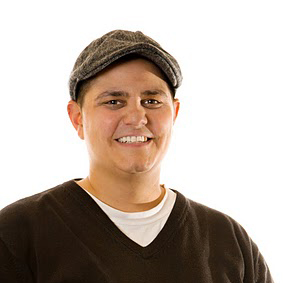
Outlet, a Mountain View-based nonprofit advocacy program, is targeting school districts across the Peninsula to help educate students in middle school and high school about issues in the gay community. Program director Anthony Ross says he is attempting to help reconcile the independent feelings of parents with state requirements about sexual education.
“Comprehensive health education is always fighting for more recognition, validation and time in the schools,” Ross said in a statement. “Students receive very little health education as it is, so topics such as gender identity and lesbian, gay, bisexual, transgender and questioning issues very rarely get time.”
Ross finds that most public-school education about LGBTQ issues are either one-off add-ins or reactions to strong media campaigns about hot-button issues such as the increase in public awareness over youth suicides based on homophobic bullying.
“For adults, for every issue, there is a kind of fence of complacency,” Ross said in a phone interview. “There is a sense of ‘we’re a progressive area and we accept everyone’ but, are you really acting like that?”
Heather Boyle, a health teacher at Mountain View High School, has spent the last six years working with Outlet to incorporate a LGBTQ education workshop in all her classes. Boyle started teaching 15 years ago in the Los Angeles-Hollywood area and worked in San Francisco school districts before coming to Mountain View. She admits to having been nervous about employing this different type of curriculum.
For her, incorporating LGBTQ education had been a necessity because of city education standards established in both Los Angeles and San Francisco-area schools. In those two cities, LGBTQ education was required as part of the curriculum.
“Coming to Mountain View, I was nervous about parent reaction,” Boyle said.
Boyle teaches 320 sophomores and juniors each year. During her tenure, only 2 or 3 parents have come to her with follow-up questions about the curriculum and only one parent has ever removed a student from the Outlet workshop.
Ross, a 39-year-old transgender man, speaks very candidly to the students about his struggle for identity during these workshops.
“When Outlet covers personal stories, that always gets the most positive reaction,” Boyle said. “I can’t do that on my own. I can go over definitions, but personal stories about how they knew, how their families reacted and how people have come around over time are things you can’t get out of a textbook.”
A native of Poughkeepsie, NY, Ross moved to Santa Cruz in 2001 and joined Outlet as a part-time program coordinator. By 2008, Ross, then known to the community as an out lesbian named Eileen, had taken over the reins of the operation. In November 2010, Ross came out to the community as transgender and began his physical transformation in January 2011.
“If you’re gay, you can hide it,” Ross said, “but you can’t hide this.”
Hearing Ross speak out about his own experiences has helped students better understand the LGBTQ community and invited questions from youth questioning their sexuality.
“I saw one of the workshops they had for Mountain View High School during my sophomore year,” said Maritza Arreola, 20. Arreola is an out lesbian who now works with Outlet mentoring youth.
“The fact that it happened in a classroom made it a safer environment,” she said. “That there was a facilitator that was queer and female and Latina was a big deal for me. Seeing how diverse the community is really has helped me come to terms with myself and be more visible.”
When asked about expanding LGBTQ education into middle schools, both Ross and Boyle were quick to say that younger children are often more in need of this type of information.
“For Mountain View and Los Altos middle schools, it varies about how much health education they do or don’t have,” Boyle said of the limited curriculum. “There is so much bullying in those middle school years and so many homophobic comments made that all kids, not just LGBTQ kids, suffer from that ignorance.”
Ross noted that middle school-aged children “are a tougher crowd” whereas high school kids “are basically over it” and with elementary-aged students “it’s all about anti-bias issues and dealing with gender roles.”
“Age is a big issue for education,” Ross said. “Bulling is harshest in middle school and schools are shy about starting education at those ages. But, it’s where it’s most needed.”
Boyle agreed adding, “middle school kids are lot more savvy than we give them credit for. You want to reach young people right before they begin to do the things you are trying to prevent. Intervention programs are not as effective.”
Outlet usually works in partnership with other LGBTQ organizations when lobbying for changes to legal policies and advocating for specific laws.
“As a non-profit, there are specific laws that direct what kind of lobbying we can do, so we are usually careful with that,” Ross said in an email. “When we can lobby, we do it.”
Angel Ortega, 21, notes that school education is often a teenager’s only resource and without support students often feel insecure and alone.
“Outlet helped me not be afraid to say that I am gay,” he said. His San Jose high school did not have any LGBTQ education. He claims that many gay students there often felt pressured to stay hidden while others dropped out to avoid the pressure.
“It would have helped me so much in high school if someone had come to talk to use about gay issues,” he said. “I would have felt like someone had my back.”
